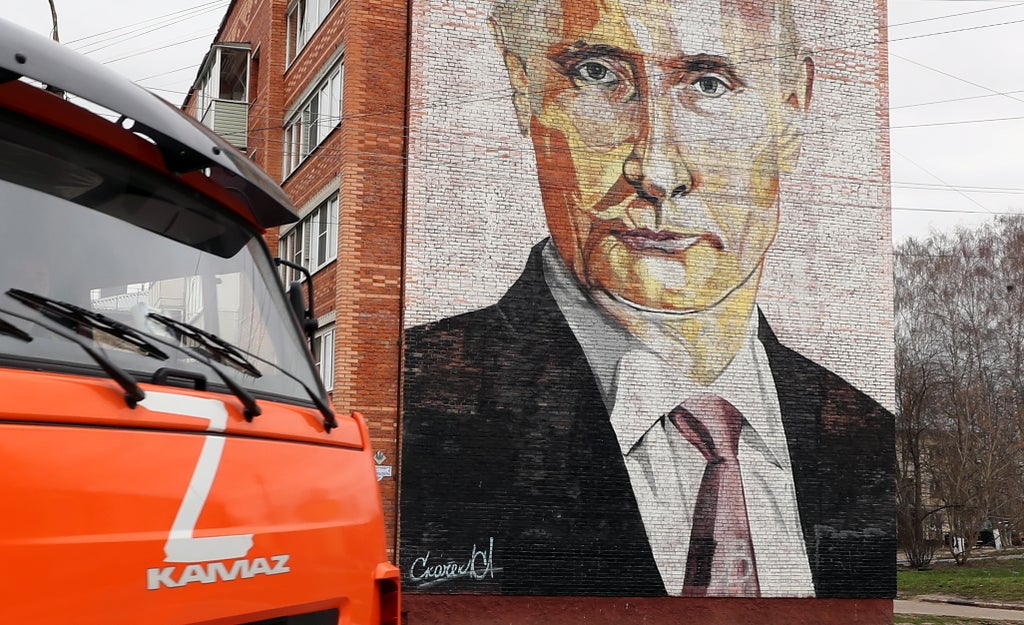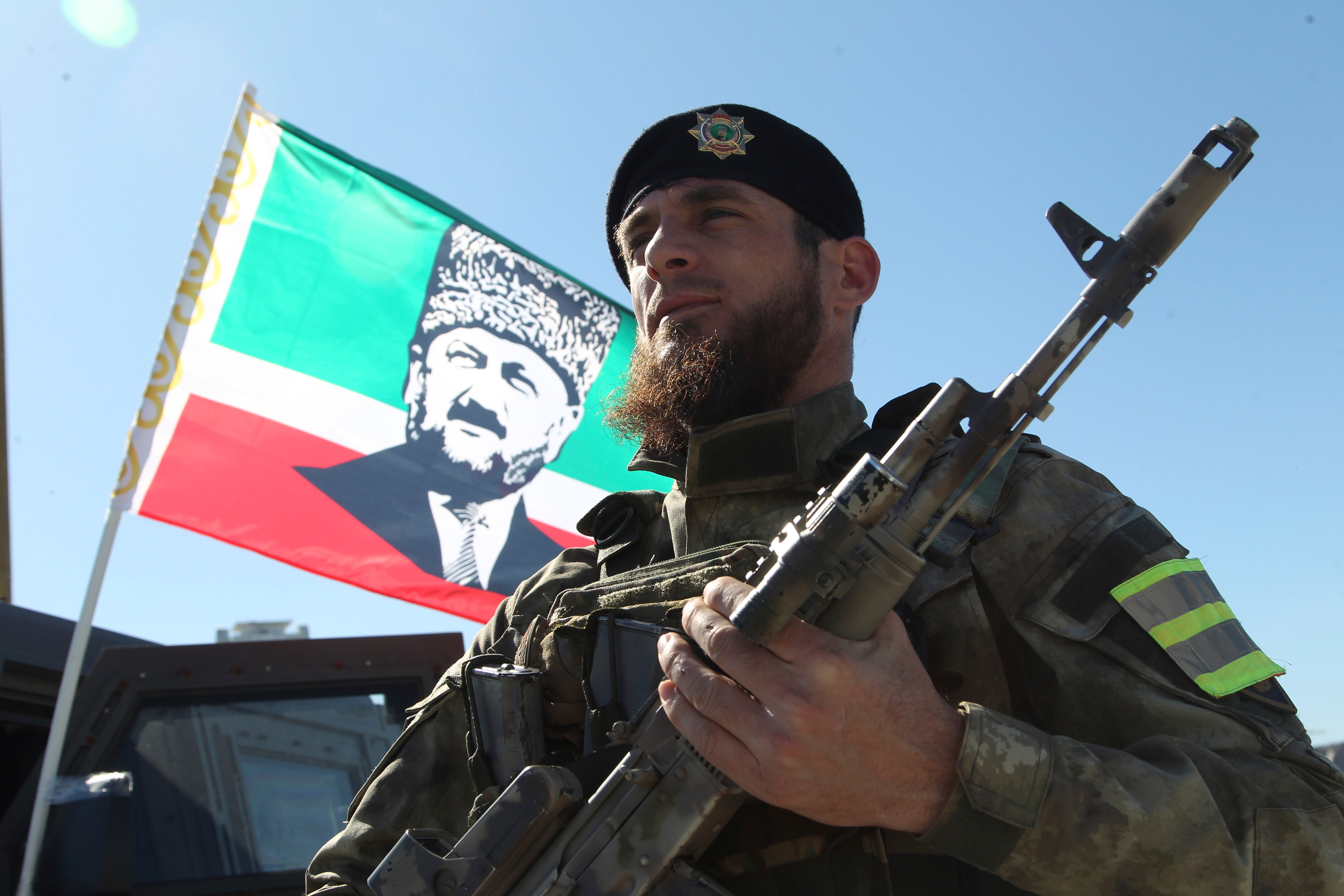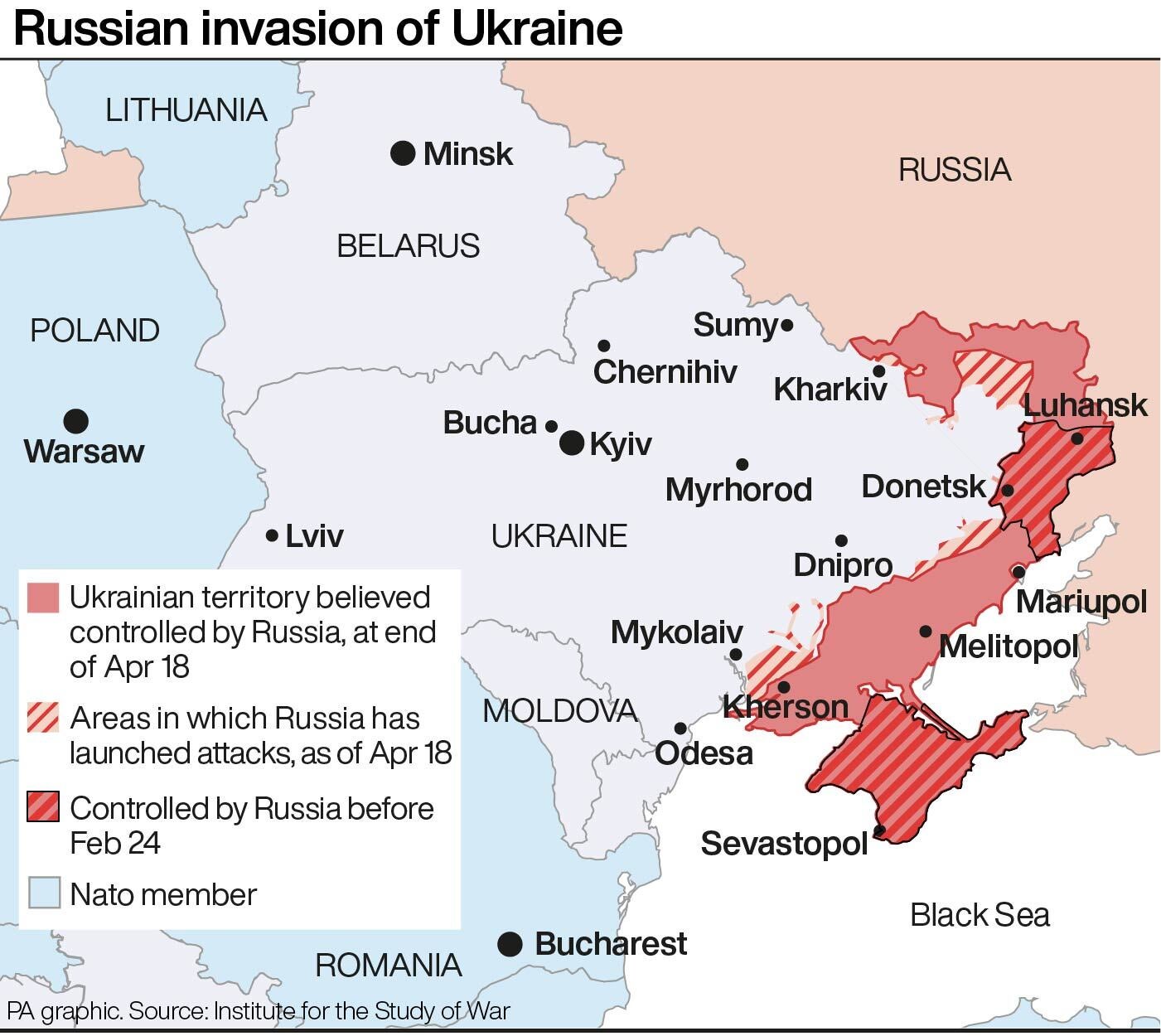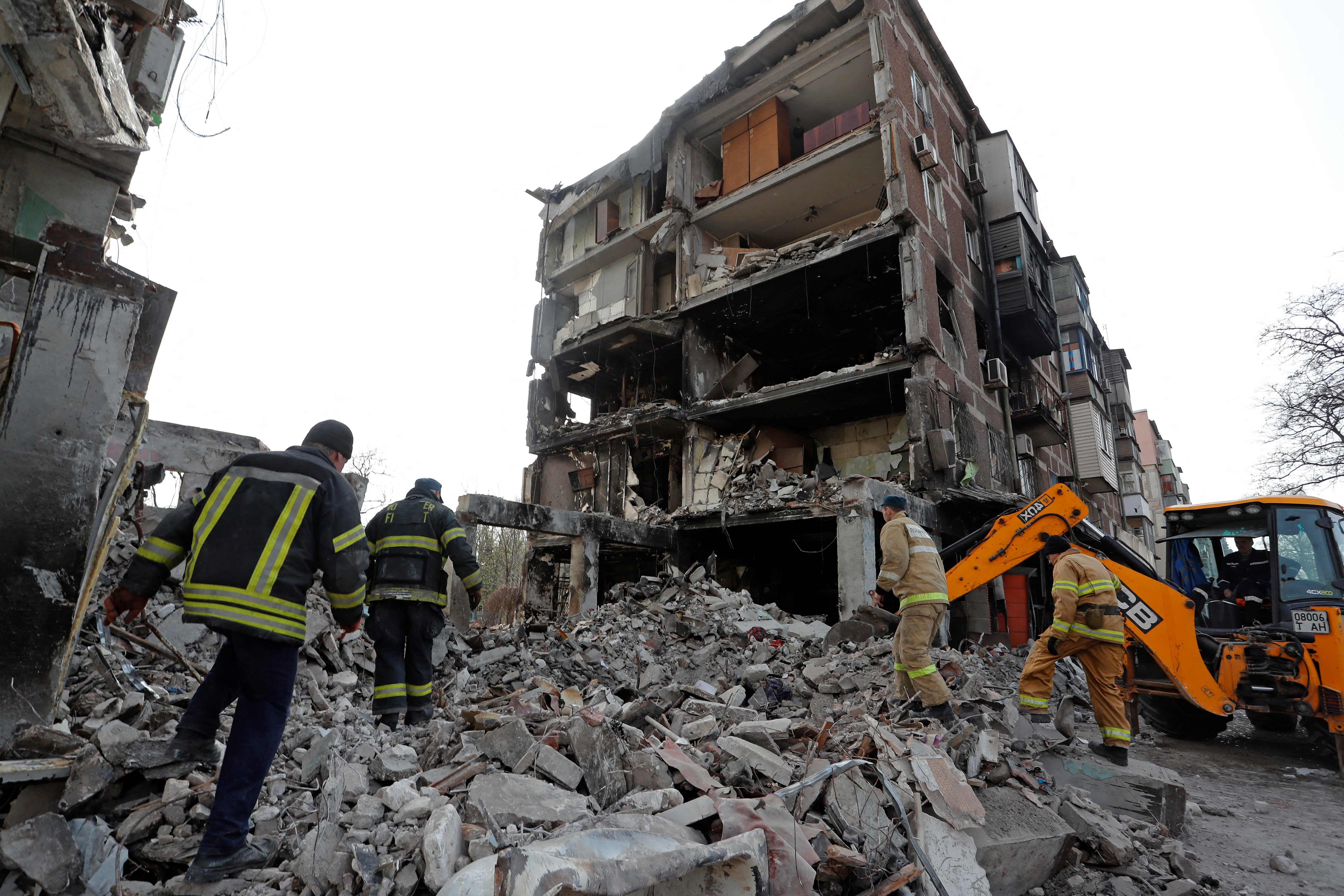
Vladimir Putin has ordered his forces not to storm the last Ukrainian stronghold in the besieged city of Mariupol but instead block it “so that not even a fly comes through”. The Russian president was talking to his defence minister, Sergei Shoigu, in comments reported on television.
Shoigu claimed the rest of the city, largely razed to the ground by weeks of Russian bombardment, had been “liberated”, except for the sprawling Azovstal steel plant where some Ukrainian forces are still holed up.
Mr Putin said his decision not to storm the plant was motivated by the desire to safeguard the lives of Russian soldiers.
The Russian president hailed the operation a “success”, while Mr Shoigu said the plant was “securely blocked”.
But leaving the steelworks in Ukrainian hands robs the Russians of the ability to declare complete victory in Mariupol, which has seen some of the fiercest fighting of the war and whose capture has both strategic and symbolic importance.
The scale of suffering there has made it a worldwide focal point, and its definitive fall would deprive Ukraine of a vital port, complete a land bridge between Russia and the Crimean Peninsula, and free up Russian troops to move elsewhere in the Donbas.
Ukrainian officials have claimed that as many as 10,000 civilians have been killed by Russian forces in Mariupol since the invasion began in February, though it is feared that figure could double. They have accused Russia of carrying out war crimes in the city, though Moscow denies targeting civilians.
Earlier, a top ally of Putin’s president claimed Russian forces would seize Azovstal on Thursday. Chechen leader Ramzan Kadyrov said the city will be under Russian control “before lunchtime or after lunch”.
If Russia captures Mariupol, it would be the biggest city to fall to the Kremlin since it invaded Ukraine eight weeks ago. Mr Putin’s conflict has caused more than five million people to flee abroad and turned cities to rubble.

A Ukrainian marine commander, Serhiy Volny, said fighters at the steel works may not be able to hold out for much longer, while president Volodymyr Zelensky has said an estimated 1,000 civilians are still sheltering there.
Ukraine was ready for a “special round of negotiations” with no conditions “to save our guys... military, civilians, children, the living and the wounded”, negotiator Mykhailo Podolyak said on Twitter.
Kyiv has proposed swapping Russian prisoners of war for safe passage for trapped civilians and soldiers. It is not known if Russia has responded to the offer of special negotiations.
Ukraine also has tried to get Russia to agree on a humanitarian corridor to evacuate the 120,000 people who Mr Zelensky said remain under siege in Mariupol.

However Ukrainian deputy prime minister Iryna Vereshchuk said the latest effort to open a safe corridor for women, children and the elderly to escape failed because the Russians did not observe a ceasefire. Many previous such agreements have fallen apart because of continued fighting.
Around 200 people were waiting to evacuate from the besieged Ukrainian city of Mariupol on Thursday but no buses had arrived as of mid-afternoon, mayor Vadym Boichenko said at a briefing.
He said a small convoy of buses had evacuated people from Mariupol on Wednesday and was now headed for the Ukrainian-controlled city of Zaporhizhia.
Serhiy Taruta, the former governor of the Donetsk region and a Mariupol native, reported the bombing of the hospital, where he said 300 people, including wounded troops and civilians with children, were sheltered.
Serhei Volyna, the commanding officer of Ukraine's 36th Marine Brigade, said in a video from the Azovstal outpost on Wednesday that his troops were outnumbered “10 to one”.

He added: “This is our appeal to the world. It may be our last. We may have only a few days or hours left. The enemy units are dozens of times larger than ours, they have dominance in the air, in artillery, in ground troops, in equipment and in tanks.”
The UK defence ministry said in an assessment that Russia wants to demonstrate significant successes ahead of its annual 9 May Victory Day celebrations.
“This could affect how quickly and forcefully they attempt to conduct operations in the run-up to this date,” the assessment read.
The Independent has a proud history of campaigning for the rights of the most vulnerable, and we first ran our Refugees Welcome campaign during the war in Syria in 2015. Now, as we renew our campaign and launch this petition in the wake of the unfolding Ukrainian crisis, we are calling on the government to go further and faster to ensure help is delivered.
To find out more about our Refugees Welcome campaign, click here. To sign the petition click here. If you would like to donate then please click here for our GoFundMe page







